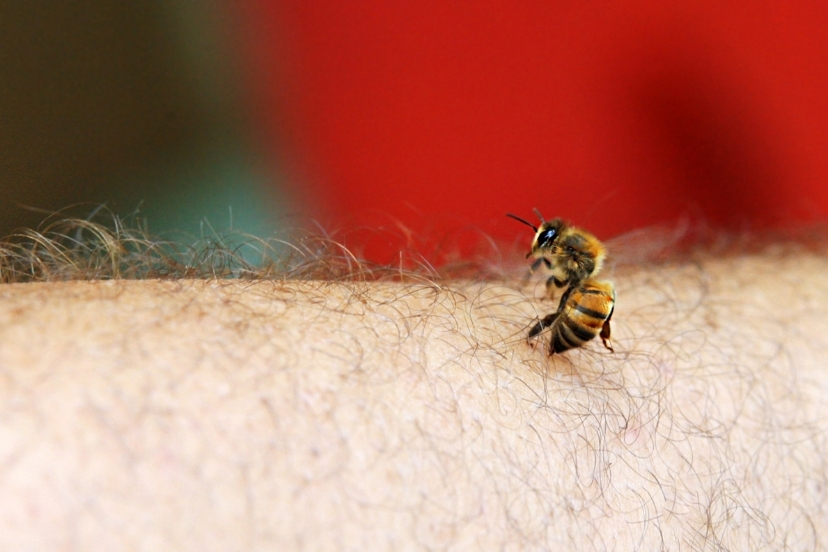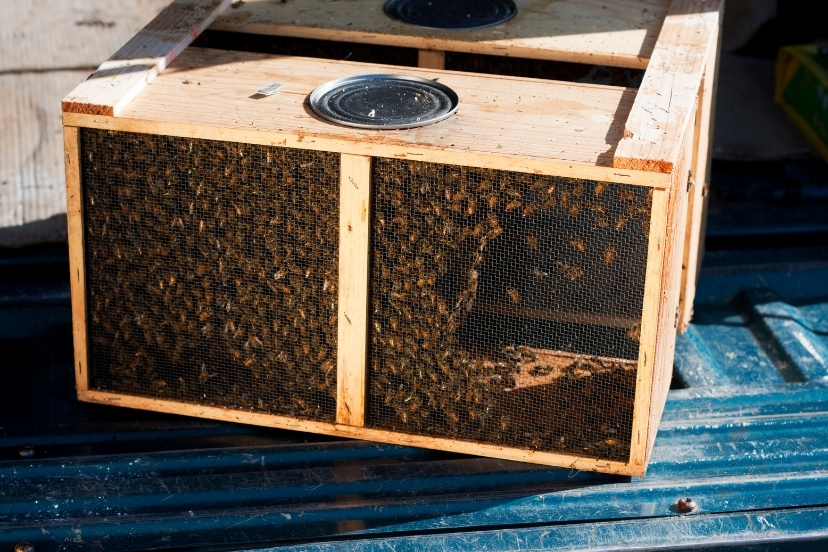Yes, you do.
Because everyone reacts to a bee sting in some way.
But do you have a SEVERE bee sting allergy?
Probably not.
Since less than 1% of people are severely allergic, the odds are very much against it.
Confused?
That’s understandable.
Because the topic of allergic reactions to bee stings can be quite confusing, and it’s often misunderstood.
So let’s try to clarify it and eliminate the confusion…
Three Possible Reactions to a Bee Sting
It’s important to understand that EVERY TIME anyone is stung by a honey bee, they will react in one of three ways:
A Local Allergic Reaction:
By far the most common reaction to bee stings.
A local allergic reaction may be as mild as a reaction to a mosquito bite – especially for a beekeeper who has built up somewhat of an immunity to stings.
But a local allergic reaction can also be fairly severe, involving swelling, itching, and redness that may last for days.
A local reaction, no matter the severity, is not life threatening, and does not indicate that the victim has a severe bee sting allergy.
Doesn’t mean that it won’t hurt, though!
A Systemic Allergic Reaction:
Systemic allergic reactions are much more rare than local reactions.
A systemic reaction is indicated through symptoms such as hives, stomach cramps and diarrhea, shortness of breath, light-headedness and heart palpitations.
These symptoms do not necessarily indicate a life threatening bee sting reaction.
But if you experience systemic allergic reaction symptoms, play it safe and get to a doctor – quickly!
Anaphylactic Shock:
Anaphylactic shock is the rarest and most severe allergic reaction to bee stings (or other insect stings or bites).
Symptoms can include:
- Wheezing
- Constriction of the throat (potentially leading to difficulty swallowing and breathing)
- Loss of consciousness
The onset of symptoms from anaphylactic shock can occur within seconds. And in extreme cases, death can result within five minutes.
People generally don’t experience anaphylactic shock unless they’ve been stung on at least two separate occasions.
With the first sting a susceptible person receives, the body’s immune system becomes sensitized to the venom. And then when a subsequent sting occurs, the immune system can overreact, in severe cases leading to anaphylactic shock.
Obviously, any symptom that might be interpreted as anaphylactic shock should be considered an extreme medical emergency.
Immunotherapy Can be Effective In Reducing Risk
For persons with a severe bee sting allergy, immunotherapy may offer a reduction in the likelihood of experiencing an extreme reaction to a sting.
Immunotherapy, also known as desensitization, involves a series of injections of diluted bee venom. The repeated but minimal exposure to the venom trains the immune system to respond to the venom in a more moderate fashion.
Though not a sure thing, immunotherapy treatments have been shown to reduce the likelihood of experiencing a severe reaction to a sting.
Have a Safety Net…
Even if you have no reason to believe that you have a severe bee sting allergy, it’s still a good idea to be prepared for a worst case scenario.
Like a trapeze artist working with a safety net, every beekeeper should be ready just in case something goes unexpectedly wrong.
Ask your doctor about purchasing an EpiPen.
The odds are very much against you ever needing one. But the peace of mind of knowing that you are prepared in case you or someone else has a severe reaction will alone be worth the purchase price.



